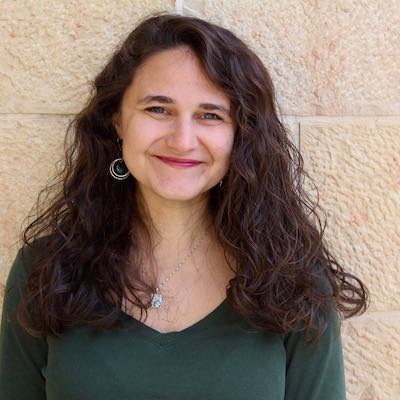Getting to Know You: One Cup of Coffee at a Time
- Tuesday, 24 September 2024 08:08
- Last Updated: Wednesday, 25 September 2024 13:49
- Published: Tuesday, 24 September 2024 08:08
- Joanne Wallenstein
- Hits: 2926
 Just in time for the holidays, Westchester Reform Temple has a new Assistant Rabbi who also has a degree in Jazz Vocal Performance.
Just in time for the holidays, Westchester Reform Temple has a new Assistant Rabbi who also has a degree in Jazz Vocal Performance.
Rabbi Alissa Platcow was ordained at the Hebrew Union College-Jewish Institute of Religion in New York, where she was a Tisch Fellow. During her rabbinic studies, Rabbi Platcow was a Marshall T. Meyer Rabbinic Fellow at B'nai Jeshurun in Manhattan. She is a founder of the Reform Community Chevra Kaddisha of NYC, serving progressive and unaffiliated Jews throughout all five boroughs of New York City in some of their most vulnerable and profound moments. In 2024, Rabbi Platcow was named one of NY Jewish Week's 36 to Watch in recognition of her compelling and innovative leadership, including the founding of the Chevra Kaddisha. She has led services all over the world — from Poland to Vancouver, Belarus to California, New Jersey to Prague and all throughout New York and Israel.
Originally from Brookline, MA, Rabbi Platcow earned bachelor's degrees in Judaic Studies and Jazz Vocal Performance from University of Massachusetts, Amherst. She holds a Certificate in Experiential Education from The Pardes Institute of Jewish Studies where she immersed herself in the study of our tradition’s texts and then made them accessible for children, teens and young adults, as well as a Certificate of Clinical Pastoral Education from North Shore University Hospital where she provided compassionate and loving pastoral care to patients, families and staff.
In order to get to know her, we asked her a few questions and here is what we learned:
What led you to become a rabbi?
When I was six years old, I wrote a book. In the back of the book it read, "About the Author: Alissa is six years old. When she grows up, she wants to be a rabbi. Her favorite color is purple." The only thing that has changed is that I am no longer six years old. But, to be honest, I don't remember writing that or even wanting to be a rabbi. What I do remember is that when I walked into my synagogue growing up, I knew it was my home. I remember the beauty of the music, the striving for moral courage in leadership, the sense of deep spirituality.
I ended up going to college for Jazz Vocal Performance and I pursued that in New York City for a while, playing gigs throughout Manhattan and Brooklyn. I loved it, but after a couple years, I knew that something was missing. It was time to renew the childhood dream, so I woke up one day, googled synagogues in New York City, cold-called and emailed about 40 rabbis and educators, and within a month, I was working at three synagogues.
Any mentors you credit with guiding you?
Rabbis Roly Matalon and Felicia Sol who mentored me and supervised me at B'nai Jeshurun on the Upper West Side provided me with support throughout my learning and taught me what it means to work in community at all times. Rabbi Melissa Buyer-Witman of Temple Israel of the City of New York was the rabbi who nurtured my curiosity in the rabbinate while I worked at the synagogue's religious school. She spent hours answering my questions about pastoral care and guiding me on my journey toward rabbinical school. Finally, Eugenia Edwards, the Director of Development at Temple Israel was my supervisor as the Development Associate at Temple Israel. She not only is the embodiment of kindness, but she taught me the back of house of a synagogue, and how to deeply understand the desires of synagogue members and bring them into reality.
How do you balance tradition and modernity?
I empower contemporary Jews and Jews who live in a modern world to have ownership over the 3000 years of tradition that rightfully belongs to them and from a place of knowledge help them to adapt it to their lives today.
How will you get to know the congregation?
I've started by going to as many WRT events as possible and having 100 cups of coffee in my first 100 days. So far, I have met and learned the stories and challenges of many wonderful members, and I'm quite caffeinated.
Are you contemplating teaching any classes or special sessions on any aspect of Judaism?
I am hoping to learn the interests of the congregation over the course of the next months and deepen their understanding of those pieces of Jewish life. I would also love to teach a class on reclaiming rituals. This would be an opportunity to dive into some of the rituals that are not as practiced or familiar in progressive Jewish spaces. With this kind of education, our members and those who support them would be able to own these pieces of our tradition which have the potential to add more meaning to their everyday lives and lifecycle moments.
How does today’s climate influence the way you will teach children about antisemitism?
In our polarized country and world, the first step is to gain a real education of the trials that we and others have faced. It is no secret that the Jewish people are a resilient people who care for one another -- and the other. We must foster both the resilience and pride, and the loving kindness for others that are so inherent in our faith. It is only then that we will be able to bring ourselves and our kids to show up for each other and to have meaningful conversations with those with whom we disagree.







